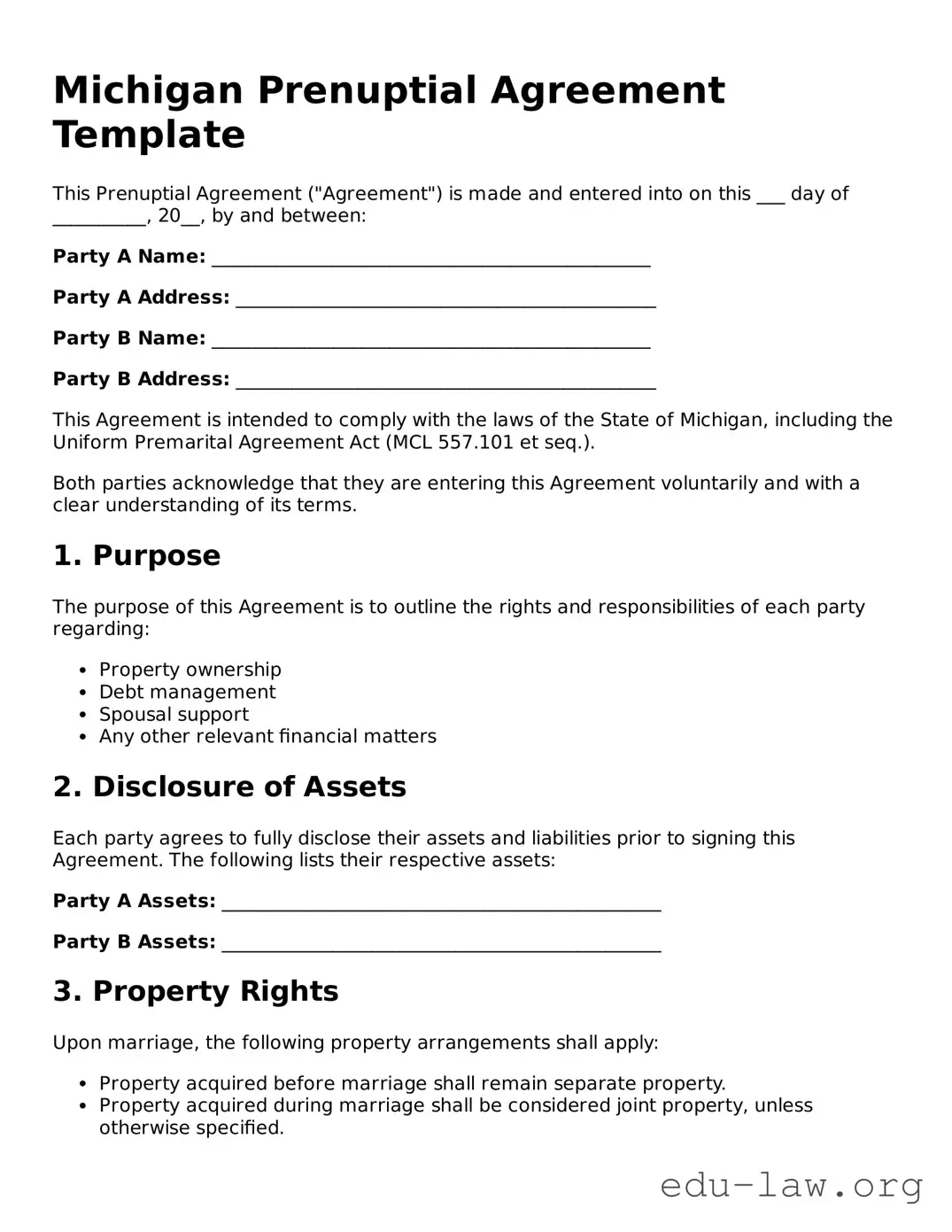Michigan Prenuptial Agreement Template
This Prenuptial Agreement ("Agreement") is made and entered into on this ___ day of __________, 20__, by and between:
Party A Name: _______________________________________________
Party A Address: _____________________________________________
Party B Name: _______________________________________________
Party B Address: _____________________________________________
This Agreement is intended to comply with the laws of the State of Michigan, including the Uniform Premarital Agreement Act (MCL 557.101 et seq.).
Both parties acknowledge that they are entering this Agreement voluntarily and with a clear understanding of its terms.
1. Purpose
The purpose of this Agreement is to outline the rights and responsibilities of each party regarding:
- Property ownership
- Debt management
- Spousal support
- Any other relevant financial matters
2. Disclosure of Assets
Each party agrees to fully disclose their assets and liabilities prior to signing this Agreement. The following lists their respective assets:
Party A Assets: _______________________________________________
Party B Assets: _______________________________________________
3. Property Rights
Upon marriage, the following property arrangements shall apply:
- Property acquired before marriage shall remain separate property.
- Property acquired during marriage shall be considered joint property, unless otherwise specified.
4. Spousal Support
In the event of a dissolution of marriage, the parties agree to the following regarding spousal support:
- No spousal support will be granted.
- Spousal support shall be determined based on the following conditions: __________________________.
5. Amendments
This Agreement can be amended only through a written document signed by both parties.
6. Governing Law
This Agreement shall be governed by the laws of the State of Michigan.
IN WITNESS WHEREOF, the parties hereto have executed this Prenuptial Agreement as of the day and year first above written.
Signature of Party A: ________________________________
Signature of Party B: ________________________________
Witness Signature: ________________________________
Date: ___________________
